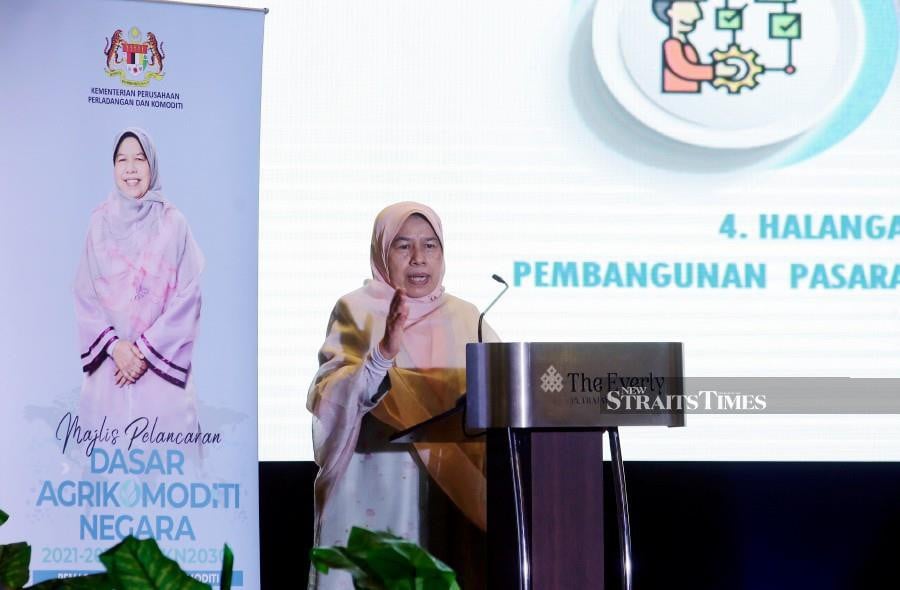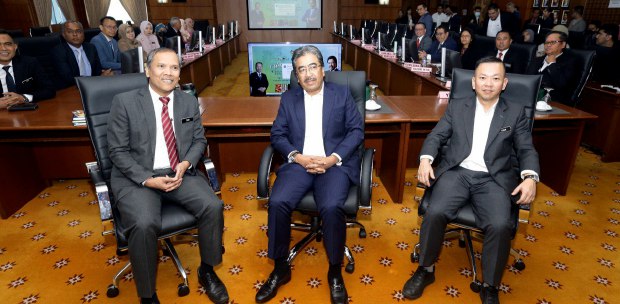PUTRAJAYA: The agricultural-commodities sector has helped enhance the socio-economic development of about 1.3 smallholders around the country, while creating over a million jobs for Malaysians.
Plantation Industries and Commodities Minister Datuk Zuraida Kamaruddin said the country had also achieved numerous successes internationally in the agricommodity sector.
"For example, Malaysia is now the largest rubber glove exporter in the world and second to only Indonesia in palm oil exports.
"We are also among the leaders in the export of wood and wood-based products, pepper and cocoa-based products," she said.
She was speaking at the launch of the National Agri-commodity Policy (DAKN) 2021-2030 in Putrajaya today.
She said DAKN 2030 was a continuation of the National Commodity Policy (DKN) 2011-2020 which was approved by Cabinet on Jan 19, 2022.
DAKN 2030 outlines the direction for the development of the country's Agro-commodity industry which
includes eight major commodities namely palm oil, rubber, timber, cocoa, pepper, plant-based fibre
(kenaf), biomass and biofuels.
"DAKN 2030 was formulated to ensure the sector continues to be driven and contributes to the country's GDP and national export earnings. At the same time, DAKN 2030 is expected to help reduce the income gap and poverty rates among the people, especially those in rural areas," said Zuraida.
She said the agri-commodity sector recorded a total trade value of RM270.2 billion, an increase of 39.7 per cent from 2020 while, the balance of trade was RM148.8 billion. Export earnings were recorded at RM209.5 billion or 16.9 per cent of the country's total export revenue.
"Palm oil and rubber were the major contributors in the increased export value of agricultural commodities,".
Palm oil increased by 48.0 per cent to RM108.5 billion while rubber increased by 44.3 per cent to RM71 billion compared to 2020.
"Therefore, to ensure this sector remains strong and sustainable, the DAKN Framework 2030 was formulated with three main components based on the Strategic Direction of the entire agricommodity sector (Vision and Thrust of DAKN 2030), Aspirations of DAKN 2030 and Cross-Sector Priorities," Zuraida said.





